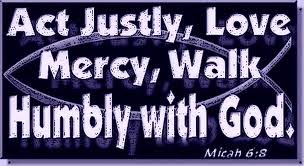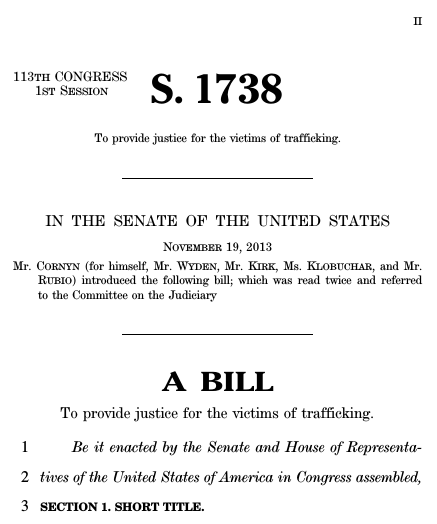Have you seen the MSNBC Series Sex Slaves? The documentary is narrated by Natalie Morales and takes viewers to the front lines of law enforcement's fight to stop human trafficking. Each episode features a different city or aspect of human trafficking.
Recently, I watched Sex Slaves: Parlor Games which focused on San Francisco and highlights the debt and sexual servitude found in massage parlors. San Francisco is home to some 300 massage parlors and spas. While a few may be legit, others are just a façade for prostitution and forced labor.
The show follows San Francisco's human trafficking task force which has closed 116 spas in recent years that were operating as brothels. The spas are checked again the online ads where illegal spas advertise. The task force visits the spas to give regular inspections from the health department and look for those operating or working without a massage permit.
I found this episode to be very informative. Here, in Chicago and it's surrounding suburbs there are well over 300 of these spas. Here are some of the highlights that give us a view into this type of activity.
Questions to ask the women working there:
Are you happy working here?
What kind of massage do you do?
Is anyone forcing you to work here?
Do they ask you to do things you don’t want to?
Are you free to come and go?
Is someone feeding you?
Did they loan you any money that has to be paid back?
Why don’t the women just leave?
“You can see in their eyes that they want to get out, but they don’t know how.”
They can be reluctant because they’ve been told police are corrupt and they will be deported. Sometimes they owe someone a lot of money and this is the only way they can pay it back and that compels them to stay. It can be that their family back home has been threatened so they stay out of fear of retaliation. Often times they work so they can send money back home to support their family. One woman stated, “I carry my whole family in Thailand.” They feel obligated to stay.
They can be reluctant because they’ve been told police are corrupt and they will be deported. Sometimes they owe someone a lot of money and this is the only way they can pay it back and that compels them to stay. It can be that their family back home has been threatened so they stay out of fear of retaliation. Often times they work so they can send money back home to support their family. One woman stated, “I carry my whole family in Thailand.” They feel obligated to stay.
Red Flags for trafficking:
Signs of living there at the spa often signals that they are housing illegal immigrants.
Cramped living quarters cluttered with food and clothing.
Improper attire can be a sign that more than a massage is being offered.
Improper attire can be a sign that more than a massage is being offered.
Owners have possession of their passports and all legal papers.
The women feel pressured to increase business by “any means necessary”
Problems:
A spa will get shut down, but then just pop up somewhere else in the name of a family member trying to skirt the law. Many are now calling themselves "relaxation spas" to avoid the regulations that go with massage parlors. The women are told by the owner not to bring their massage ID because they “don’t do massage.” Then when the spa is inspected, the women get cited for not having a massage license. The woman gets fined, but she has no money so she is forced to continue working in order to pay her fine. When one of the workers receiving citations on the show was asked to sign the report she calls someone with a male voice to get the ok. Clearly, there is someone else in charge.
Unfortunately, the rules of this game favor the business at the expense of the women who do the work.
Often, the women are licensed by the city, but the business itself is not. The business must be licensed or apply for a license exemption and have a health permit.
Unfortunately, the rules of this game favor the business at the expense of the women who do the work.
Often, the women are licensed by the city, but the business itself is not. The business must be licensed or apply for a license exemption and have a health permit.
The woman will say "I just started yesterday."
The owner pleads ignorance and blames the workers
The manager on duty says that her sister (or other family member) is the owner and she’s on vacation in Las Vegas. Most likely they are just working at another spa in the network.
They stated in the show that they need to find just one who is willing to cooperate. Once someone comes forward you have more power to prosecute.
This highlights the great need out there for spa outreach. The work can be difficult. Most of the women do not speak English so communication with them is hard. We can be the hands and feet of Christ by going into the darkest of places and shining God's light. By building a relationship with the women maybe just one will come forward.
You can read more about this series at MSNBC Documentaries.



















